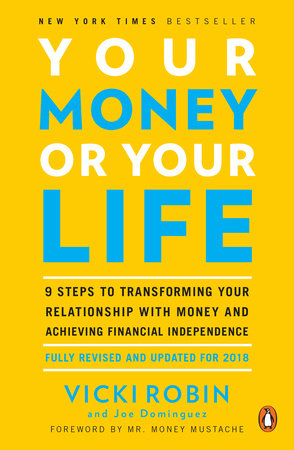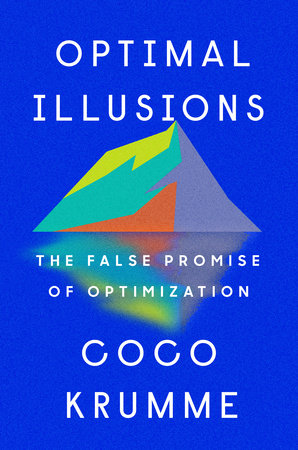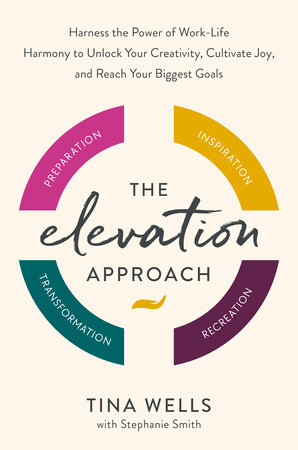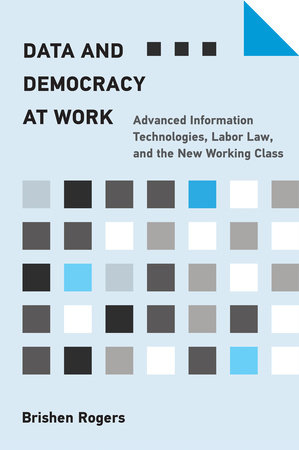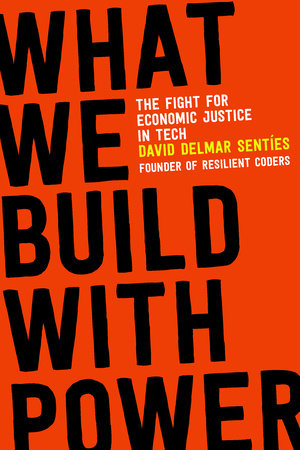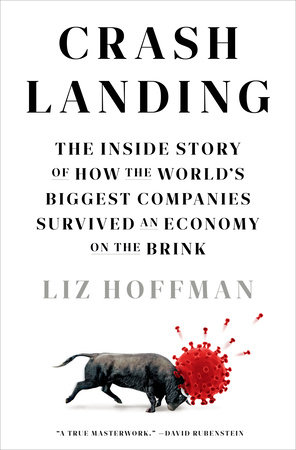Quick Summary
One Sentence Summary:
“Your Money or Your Life” offers a transformative approach to personal finance, emphasizing financial independence and a mindful relationship with money.
Big Idea:
The big idea is to achieve financial independence through frugality, mindfulness, and a radical reevaluation of what brings true satisfaction in life.
Five Key Ideas:
- Money-Life Energy Concept: Viewing money as a representation of life energy, where time and energy spent earning money are balanced against the fulfillment received from expenditures.
- Frugality and Resource Management: Advocating for smart spending, saving, and investing habits, emphasizing that less can be more when it comes to true happiness.
- Tracking and Reflecting on Expenses: Encouraging readers to meticulously track expenses to understand where their money is going and if it aligns with their values.
- Achieving Financial Independence: Outlining strategies for reaching a point where work becomes optional, and one can live off their investments or savings.
- Transformative Relationship with Money: Fostering a mindset shift from consumerism to conscious living, where financial decisions are made based on life values and purpose.
Actionable Advice:
- Track Every Penny: Start by tracking every expense to gain clarity on spending habits.
- Evaluate Expenses: Regularly assess whether each expense brings genuine happiness and aligns with personal values.
- Focus on Savings: Prioritize saving and investing to build a financial cushion that can lead to eventual financial independence.
About the Author:
Joe Dominguez was a successful financial analyst who retired early at 31 and dedicated his life to teaching others about financial independence. Vicki Robin is a renowned writer and speaker on financial resilience and sustainable living.
Read Next:
- “The Millionaire Next Door” by Thomas J. Stanley and William D. Danko: A classic that reveals the common traits of those who have accumulated wealth.
- “The Simple Path to Wealth” by JL Collins: A guide to achieving financial independence through low-cost index fund investing.
- “Rich Dad Poor Dad” by Robert Kiyosaki: Offers unique perspectives on money, investing, and the importance of financial education.
In Depth
Money-Life Energy Concept
Money isn’t just paper or numbers. It’s life energy. You trade hours of your life for it. This concept is central in “Your Money or Your Life.”
Imagine every dollar as a piece of your life. What’s it worth? The book urges us to think deeply about this. Are we spending our life energy wisely?
Here’s a detailed example from the book. Picture a regular office job. You earn $20 per hour. But factor in commuting, work clothes, unwinding after a stressful day. That $20 might actually be $10 of life energy. Is a $50 dinner worth five hours of your life?
Dominguez and Robin put it plainly:
“Money is something we choose to trade our life energy for.”
I remember my first job. I bought fancy gadgets to feel successful. But was it worth it? Not really. I was trading precious life energy for fleeting thrills.
This concept makes you think. It pushes you to scrutinize every purchase. Is this item or experience worth the slice of my life?
Let’s talk about impact. This idea can be life-changing. You start to see money differently. Not just a tool for buying but a reflection of your life.
For instance, I started cooking at home more. Why? Because I realized eating out was chipping away at my life energy without giving much joy in return.
But it’s not just about cutting costs. It’s about aligning spending with what truly matters. Maybe you love traveling. That’s fine. If it brings real joy, it’s worth your life energy.
The book doesn’t tell you what to value. It empowers you to decide. It encourages you to ask: “Is this worth my life energy?”
Adopting this mindset isn’t always easy. It means being brutally honest. It requires reassessing your lifestyle. But the rewards are significant.
You might find yourself working less but enjoying more. You could discover passions you never had time for. Your life energy starts going into things that truly matter.
The Money-Life Energy Concept isn’t just about saving money. It’s about living a fuller, more intentional life. It’s about making sure every dollar spent reflects a piece of your life well spent.
Frugality and Resource Management
Frugality isn’t about being cheap. It’s smart resource management. Dominguez and Robin champion this in “Your Money or Your Life.”
They redefine frugality. It’s not deprivation. It’s finding value. It’s asking, “Does this add to my life?”
The book shares an example. A couple earning six figures cuts their spending in half. Not by scrimping on essentials but by asking if each expense truly mattered. They realized fancy cars and designer clothes didn’t equal happiness. Their joy came from time with family, nature walks, and simple living.
Dominguez and Robin state:
“Frugality is about making conscious choices and deciding what’s enough for you.”
This idea hit home for me. I once thought more stuff meant more happiness. I was wrong. I found joy in simpler things. A walk in the park. A good book. Time with loved ones.
Frugality here means prioritizing. It’s spending on what brings real joy, not just instant gratification.
But it’s also about resourcefulness. It’s finding creative ways to stretch your dollar. Maybe it’s repairing instead of replacing. Maybe it’s buying second-hand.
The book doesn’t promote extreme penny-pinching. It’s not about living on the edge. It’s about making thoughtful choices.
For example, I learned to cook. Eating out less saved money. But it wasn’t just about savings. It was healthier. It became a hobby. It brought family and friends together.
Frugality, as the book suggests, isn’t a one-size-fits-all. It’s personal. What’s frivolous for one might be essential for another.
It’s about questioning the norm. Do you need the latest phone? Or can the old one last another year?
It’s also about understanding true cost. A cheap item that breaks easily is more expensive in the long run. Quality matters.
Frugality can lead to a richer life. Less stress about bills. More money for things that truly matter. More time, as you’re not always chasing the next paycheck.
This key idea challenges us. It asks us to look beyond the surface. To find joy in simplicity. To understand that managing resources wisely is a path to a more fulfilling life.
Tracking and Reflecting on Expenses
Knowing where your money goes is crucial. Dominguez and Robin stress this in “Your Money or Your Life.”
The book pushes for meticulous expense tracking. It’s not just about budgeting. It’s deeper. It’s understanding your financial flow.
Here’s an example. A woman in the book tracked every cent. She realized she was spending a lot on lunches out. But she didn’t enjoy them much. She started packing lunches. She saved money. But more importantly, she felt better. Her meals were healthier. And she valued the savings more than the convenience.
Dominguez and Robin highlight the importance:
“The act of tracking your expenses is an act of making your life visible and real.”
This resonated with me. I started tracking my expenses. It was eye-opening. I saw patterns. I spent a lot on things I didn’t care about. It was a wake-up call.
Tracking expenses is like a mirror. It shows your habits, your priorities, your values. It can be confronting. But it’s also empowering.
It’s not just about cutting costs. It’s about alignment. Does your spending reflect your values? If you value health, are you investing in it? If you love learning, are your expenses showing that?
For me, tracking led to changes. I cut down on impulsive buys. I allocated more to books, courses, and healthy food. My spending started to mirror my values.
But it’s not just a one-time thing. The book urges regular reflection. It’s a continuous process. Habits change. Values evolve. Your spending should reflect that.
It’s also about mindfulness. When you track expenses, you’re more conscious. You think before you buy. It becomes a habit. A mindful approach to money.
This key idea isn’t just about financial health. It’s about personal growth. It’s about being conscious of where your life energy is going. It’s about ensuring that your financial habits support your life goals and values.
Tracking and reflecting on expenses is a tool. It’s a way to bring clarity, alignment, and intentionality to your financial life.
Achieving Financial Independence
Financial independence is a key focus in “Your Money or Your Life.” Dominguez and Robin detail how it’s attainable.
It’s not just for the wealthy. It’s about smart choices, saving, and investing. It’s reaching a point where work is optional.
The book shares a story. A man, not high-earning, diligently saves. He invests wisely. He lives frugally. Over time, his investments generate enough income. He’s financially independent. He chooses to work less. He pursues passions. His life isn’t dictated by paychecks.
The authors assert:
“Financial independence is about having more life choices available to you.”
This idea is powerful. It’s not about hoarding wealth. It’s about freedom. The freedom to choose how you live, work, and spend your time.
I witnessed this with a friend. He lived modestly, saved diligently. He retired early. Now, he travels, volunteers, and enjoys life. He’s not extravagantly rich. But he’s financially independent.
Achieving this isn’t overnight. It’s a journey. It involves saving a significant portion of your income. It involves investing wisely.
But it’s also about expenses. Lower expenses mean you need less to be independent. It’s not just earning more. It’s needing less.
The book encourages a long-term view. It’s not about get-rich-quick schemes. It’s about consistent, wise financial habits.
And it’s not just for the young. It’s never too late to start. Every step towards independence is a step towards more freedom.
This key idea is empowering. It shows that financial independence is accessible. It’s about choices, habits, and persistence. It’s about prioritizing your financial freedom and life choices over immediate gratification.
Transformative Relationship with Money
“Your Money or Your Life” pushes for a profound shift in how we view money. Dominguez and Robin advocate for a transformative relationship with it.
It’s not just a medium of exchange. It’s a reflection of our values, choices, and life energy.
One striking example in the book is of a successful lawyer. She earned well but felt empty. Through the book’s principles, she reevaluated her relationship with money. She realized she valued time over material wealth. She cut back her hours, earned less, but lived more. She found happiness in simpler things and time for passions neglected for years.
The authors encapsulate this idea:
“When you live your life in alignment with your values, you find money has a life of its own and your full life becomes its own reward.”
This resonates deeply. I once chased money, equating it with success. But it felt hollow. Shifting my perspective changed everything. I started aligning spending with what truly mattered.
This isn’t about renouncing wealth. It’s about conscious use. It’s knowing why you earn, spend, save, or invest.
Money becomes a tool, not a master. It’s there to serve your life, not dictate it.
The book prompts introspection. It asks: Are you working for money or is money working for you? Are you spending to fill voids or to enrich your life?
This idea is empowering. It shifts control back to you. You decide what’s enough. You choose where your money goes.
It also fosters gratitude. You appreciate what you have. You find richness in experiences, relationships, and growth.
This transformative relationship with money isn’t instant. It’s a journey. It’s about peeling back layers, questioning societal norms, and redefining success.
But the outcome is profound. A life where money supports your values, dreams, and purpose. A life where financial decisions are made with clarity and intention. It’s a path to a more fulfilling, balanced, and meaningful existence.
Actionable Advice
- Track Every Expense: Record every penny you spend. Understand where your money goes.
- Calculate Your Real Hourly Wage: Factor in commute, work-related expenses. Know what your time is truly worth.
- Assess Each Expense: Ask, “Is this worth my life energy?” Make spending intentional.
- Embrace Frugality: Cut unnecessary expenses. Value quality over quantity.
- Set Financial Goals: Define what financial independence means to you. Create a roadmap.
- Invest Wisely: Learn about investments. Make your money grow.
- Regular Reflections: Monthly, review your finances. Adjust as needed.
- Align Spending with Values: Ensure your expenses reflect what’s important to you.
- Embrace Simplicity: Find joy in simple pleasures. Less can be more.
- Educate Yourself: Read more on personal finance. Knowledge is power.
About the Author
Vicki Robin is a renowned author and speaker on financial independence and sustainable living. Born in Oklahoma in 1945, she co-authored “Your Money or Your Life” with Joe Dominguez, which became a bestseller and sparked a movement towards financial mindfulness. Her approach blends financial education with personal development. She emphasizes frugality, resourcefulness, and aligning spending with values.
Robin’s beliefs stem from her own life experiences. She lived frugally and invested wisely, achieving financial independence early. Her work extends beyond personal finance. She advocates for community resilience, environmental sustainability, and conscious living.
Her influence is broad. She’s featured in various media, giving talks, and contributing to discussions on money, life, and sustainability. Vicki Robin’s work continues to inspire and guide individuals towards a more intentional and financially independent life.
Read These Next
You might like these similar books
- “The Millionaire Next Door” by Thomas J. Stanley and William D. Danko
- “The Simple Path to Wealth” by J.L. Collins
- “Rich Dad Poor Dad” by Robert T. Kiyosaki
- “The 4-Hour Workweek” by Timothy Ferriss
- “I Will Teach You to Be Rich” by Ramit Sethi
FAQ
1. What is the main message of “Your Money or Your Life”?
It advocates for financial independence through frugal living, wise investments, and aligning spending with personal values.
2. Is the book suitable for beginners in personal finance?
Yes, it’s designed for all levels, offering simple, actionable advice.
3. Does the book suggest a specific budgeting method?
It emphasizes tracking every expense and assessing the value each brings to your life.
4. Can the principles in the book apply to high debt situations?
Yes, the principles can help in managing and reducing debt effectively.
5. Is “Your Money or Your Life” only about saving money?
No, it’s also about finding fulfillment and making conscious life choices.
6. Does the book offer investment advice?
It provides basic investment guidance but primarily focuses on financial habits and mindset.
7. How relevant are the book’s ideas in today’s economic climate?
The core principles are timeless, focusing on personal habits and values, applicable in any economy.

